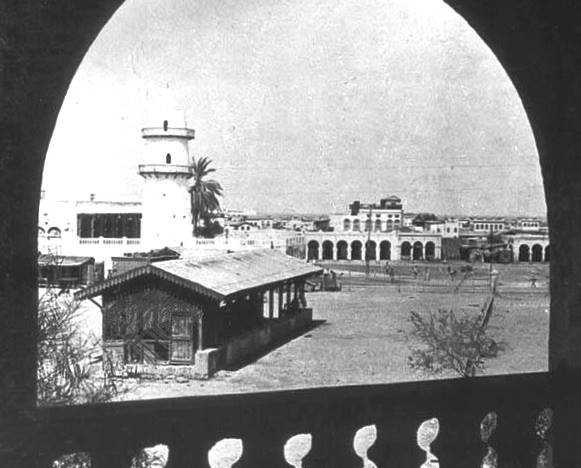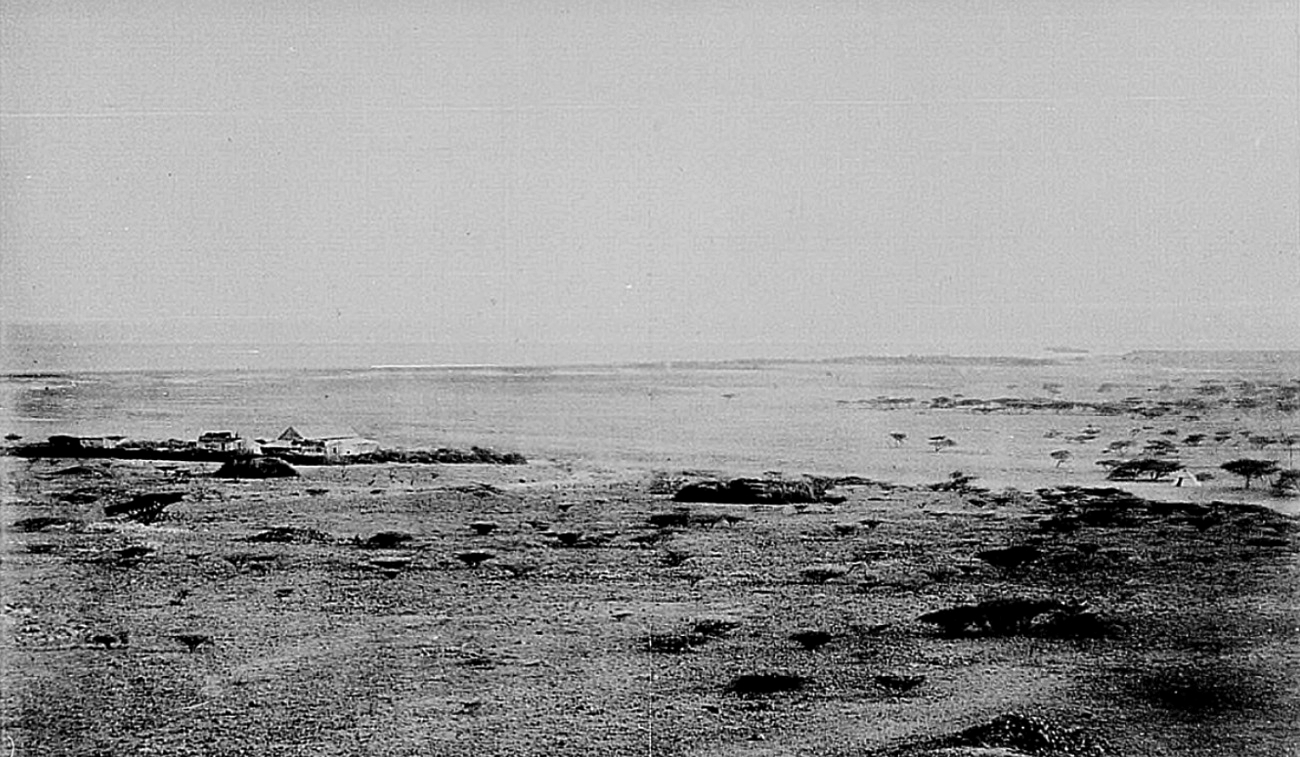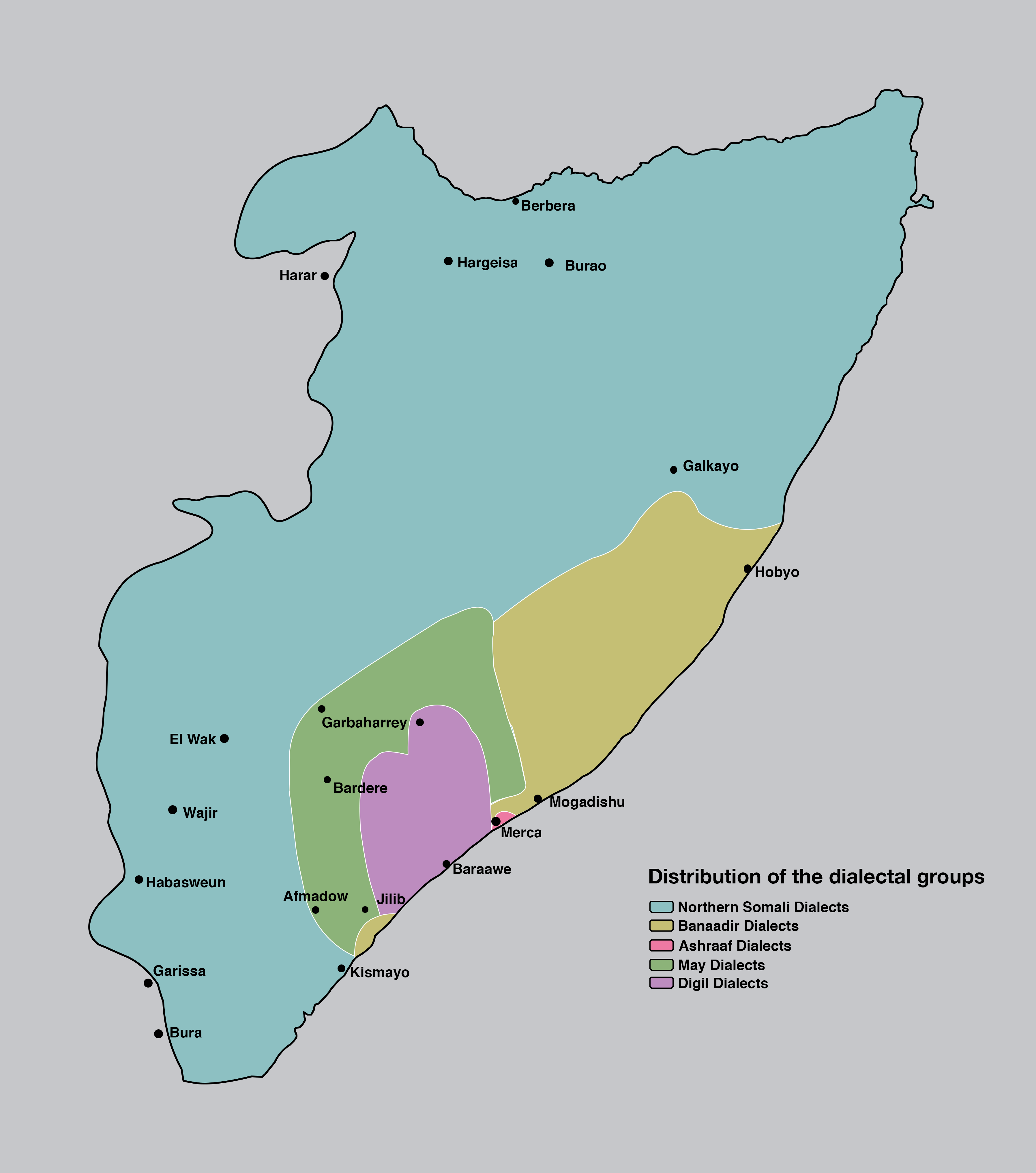|
Abdallah Lee
Abdallah Abdoulkader Abass (commonly known as Abdallah Lee; 1963–2007) was a well-known Djiboutian songwriter, composer and singer. He remains among the most famous Afar singers in Djibouti. Abdallah had a significant influence on newer generations of Djiboutian musicians in the 1980s and 1990s. Biography Abdallah was born on 7 August 1963 in Djibouti City, Quartier 3 at the maternity ward of the former Paul-Faure hospital. He is the son of Abdoulkader Abass Bourhan Aboubaker and great-grandson of Aboubaker Ibrahim, governor of Zeila (Somalia) under Turkish sovereignty at the end of the 19th century, and Kadidja Said Abdallah Baabad. He lived with his family, first in Quartier 3, then in Quartier 1, and finally in the city of Arhiba. He passed his undergraduate examinations and was planning on pursuing a technical master's degree, but then abandoned his studies and took a job as a storekeeper in Obock, where his mother's family lived. It was then that he began playing music wit ... [...More Info...] [...Related Items...] OR: [Wikipedia] [Google] [Baidu] |
Music Of Djibouti
The music of Djibouti refers to the musical styles, techniques and sounds of Djibouti. The first major form of modern Djiboutian music began in the mid-1940s, when Djibouti was a part of the French Somaliland. Djiboutian music is characterized by poetry, so that listening to a Djiboutian song is first paying attention to its meaning. The artist rocks the listeners in the cheerfulness of the refrains and the turn of the sentences. Often sung by a couple, a song is played in the form of a sleight of hand between a man and a woman, one recounting his feelings and his love, even his passion for the other, until the other accepts or rejects this offer. The Djiboutian song is also distinguished by the "Gouux", a deep and sensual voice which highlights the artist's passion for his work. Overview Djibouti is a multiethnic country. The two largest ethnic groups are the Somali and the Afar. There are also a number of Arab, Ethiopian and European ( French and Italian) residents. Traditiona ... [...More Info...] [...Related Items...] OR: [Wikipedia] [Google] [Baidu] |
Djibouti City
Djibouti (also called Djibouti City and in many early English texts and on many early maps, Jibuti; so, Magaalada Jabuuti, french: link=no, Ville de Djibouti, ar, مدينة جيبوتي, aa, Gabuutî Magaala) is the eponymous capital of Djibouti, and has more people than the rest of Djibouti combined. It is located in the coastal Djibouti Region on the Gulf of Tadjoura. Djibouti has a population of around 600,000 inhabitants, which counts for 54% of the country's population. The settlement was founded in 1888 by the French, on land leased from the ruling Somali and Afar Sultans. During the ensuing period, it served as the capital of French Somaliland and its successor the French Territory of the Afars and Issas. Known as the ''Pearl of the Gulf of Tadjoura'' due to its location, Djibouti is strategically positioned near the world's busiest shipping lanes and acts as a refueling and transshipment center. The Port of Djibouti is the principal maritime port for imports to and ... [...More Info...] [...Related Items...] OR: [Wikipedia] [Google] [Baidu] |
French Somaliland
French Somaliland (french: Côte française des Somalis, lit= French Coast of the Somalis so, Xeebta Soomaaliyeed ee Faransiiska) was a French colony in the Horn of Africa. It existed between 1884 and 1967, at which time it became the French Territory of the Afars and the Issas. The Republic of Djibouti is its legal successor state. History French Somaliland was formally established in 1896 after the Issa and Afar each signed a treaty with the French, but iterations of what will eventually become French Somaliland existed for few decades prior to the official formation. On March 11, 1862, a treaty signed by Afar Sultan Raieta Dini Ahmet in Paris ceded the territory of Obock for 10,000 thalaris, around 55,000 francs. Later on, that treaty was used by Captain Alphonse Fleuriot de Langle to colonize the south of the Bay of Tadjoura. On March 26, 1885 the French signed another treaty with the Issa making the latter a protectorate under the French. No money changed hands and the ... [...More Info...] [...Related Items...] OR: [Wikipedia] [Google] [Baidu] |
Poitiers
Poitiers (, , , ; Poitevin: ''Poetàe'') is a city on the River Clain in west-central France. It is a commune and the capital of the Vienne department and the historical centre of Poitou. In 2017 it had a population of 88,291. Its agglomeration has 130,853 inhabitants in 2016 and is the center of an urban area of 261,795 inhabitants. With more than 29,000 students, Poitiers has been a major university city since the creation of its university in 1431, having hosted René Descartes, Joachim du Bellay and François Rabelais, among others. A city of art and history, still known as "''Ville aux cent clochers''" the centre of town is picturesque and its streets include predominantly historical architecture and half-timbered houses, especially religious architecture, mostly from the Romanesque period ; including notably the Saint-Jean baptistery (4th century), the hypogeum of the Dunes (7th century), the Notre-Dame-la-Grande church (12th century), the Saint-Porchaire church (12th ... [...More Info...] [...Related Items...] OR: [Wikipedia] [Google] [Baidu] |
Afar Language
The Afar language ( aa, Qafaraf, links=no; also known as ’Afar Af, Afaraf, Qafar af) is an Afroasiatic language belonging to the Cushitic branch. It is spoken by the Afar people inhabiting Djibouti, Eritrea and Ethiopia. Classification Afar is classified within the Cushitic branch of the Afroasiatic family. It is further categorized in the Lowland East Cushitic sub-group, along with Saho and Somali. Its closest relative is the Saho language. Geographic distribution The Afar language is spoken as a mother tongue by the Afar people in Djibouti, Eritrea, and the Afar Region of Ethiopia. According to ''Ethnologue'', there are 1,379,200 total Afar speakers. Of these, 1,280,000 were recorded in the 2007 Ethiopian census, with 906,000 monolinguals registered in the 1994 census. Official status In Djibouti, Afar is a recognized national language. It is also one of the broadcasting languages of the Radio Television of Djibouti public network. In Eritrea, Afar is recognized as on ... [...More Info...] [...Related Items...] OR: [Wikipedia] [Google] [Baidu] |
Zeila
Zeila ( so, Saylac, ar, زيلع, Zayla), also known as Zaila or Zayla, is a historical port town in the western Awdal region of Somaliland. In the Middle Ages, the Jewish traveller Benjamin of Tudela identified Zeila (or Hawilah) with the Biblical location of Havilah. Most modern scholars identify it with the site of Avalites mentioned in the 1st-century Greco-Roman travelogue the ''Periplus of the Erythraean Sea'' and in Ptolemy, although this is disputed. The town evolved into an early Islamic center with the arrival of Muslims shortly after the Hijrah. By the 9th century, Zeila was the capital of the early Adal Kingdom and Ifat Sultanate in the 13th century; and also a capital for its successor state the Adal Sultanate, it would attain its height of prosperity a few centuries later in the 16th century. The city subsequently came under Ottoman and British protection in the 18th century. Up until recently Zeila was surrounded by a large wall with five gates: Bab al Sahil and B ... [...More Info...] [...Related Items...] OR: [Wikipedia] [Google] [Baidu] |
Arhiba
Arhiba FC, or simply Arhiba, is a Djiboutian football club located in Arhiba, Djibouti. It currently plays in the Djibouti Division 2. History In 2017, Arhiba made news for receiving 25 Celtic shirts donated by Moussa Dembele. Stadium Currently the team plays at the 10,000 capacity Stade du Ville The El Hadj Hassan Gouled Aptidon Stadium is a multi-use stadium in Djibouti City, Djibouti. It is currently reserved mostly for football matches. The stadium has a capacity of hosting up to 20,000http://www.udj-djibouti.com/dji/index.php?option= .... References External linksSoccerway Football clubs in Djibouti {{Djibouti-footyclub-stub ... [...More Info...] [...Related Items...] OR: [Wikipedia] [Google] [Baidu] |
Obock
Obock (also Obok, aa, Hayyú) is a small port town in Djibouti. It is located on the northern shore of the Gulf of Tadjoura, where it opens out into the Gulf of Aden. The town is home to an airstrip and has ferries to Djibouti City. The French form Obock derives from Arabic "Oboh", deformation of Oboki, a name given to the Wadi Dar'i in its middle part, upstream of its coastal delta. History The fishing village was originally built on the plateau of Dala-h Húgub near the Dar'i Wadi, with some houses constructed of mud and stone and Daboyta. Most of the inhabitants earned their living through animal husbandry, fishing, commerce and used a well for drinking water. During the Middle Ages, Obock was ruled by the Ifat Sultanate and then the Adal Sultanate. The Sultans of Raheita emerged from the Adal Sultanate. Although nominally part of the Ottoman Empire since 1554, between 1821 and 1841, Muhammad Ali, Pasha of Egypt, came to control Yemen and the sahil, with Zeila and as far a ... [...More Info...] [...Related Items...] OR: [Wikipedia] [Google] [Baidu] |
Djiboutian Civil War
The Djiboutian Civil War (also known as the First Afar insurgency) was a conflict in Djibouti, lasting from 1991 to 1994 and resulting in thousands of fatalities. This uneven power sharing between the Issas and Afars led to the Civil War that ravaged the country for three years. Background On 11 March 1862, the French Government made an agreement with the Afar Sultan Raieta Dini Ahmet. Ahmet sold his territory of Obock for 10,000 thalaris, around French franc, F55,000. This was the start of the French colonisation era in the region, the treaty was used by a captain of the Fleuriot de Langle, to colonise the south part of the Gulf of Tadjoura, Tadjoura Gulf. Since at least French rule, first as French Somaliland and then as French Territory of the Afars and the Issas, there have been ethnic tensions in Djibouti between the Issa (clan), Issas, and the Afar people, Afars. Following independence in 1977, the Issas-dominated People's Rally for Progress party had ruled Djibouti, and sin ... [...More Info...] [...Related Items...] OR: [Wikipedia] [Google] [Baidu] |
Somali Language
Somali (Latin script: ; Wadaad writing, Wadaad: ; Osmanya: 𐒖𐒍 𐒈𐒝𐒑𐒛𐒐𐒘 ) is an Afroasiatic languages, Afroasiatic language belonging to the Cushitic languages, Cushitic branch. It is spoken as a mother tongue by Somalis in Greater Somalia and the Somali diaspora. Somali is an official language in Somalia and Ethiopia, and a national language in Djibouti as well as in northeastern Kenya. The Somali language is written officially with the Somali Latin alphabet, Latin alphabet although the Arabic alphabet and several Somali scripts like Osmanya script, Osmanya, Kaddare script, Kaddare and the Gadabuursi Somali Script, Borama script are informally used.Lewis, I.M. (1958)The Gadabuursi Somali Script ''Bulletin of the School of Oriental and African Studies'', University of London, Vol. 21, pp. 134–156. Classification Somali is classified within the Cushitic branch of the Afroasiatic family, specifically, Lowland East Cushitic languages, Lowland East Cushitic in ... [...More Info...] [...Related Items...] OR: [Wikipedia] [Google] [Baidu] |
Djiboutian
The Djiboutians (french: Djiboutiens) are the people inhabiting or originating from Djibouti. The country is mainly composed of two ethnic groups, the Somali and the Afar. It has many languages - though Somali and Afar are the most widely spoken ones, Arabic and French serve as the official languages. There is a small Djiboutian diaspora in North America, Europe, and Australia. Demographics Djibouti has a population of about 884,017 inhabitants. It is a multiethnic country. The local population grew rapidly during the latter half of the 20th century, increasing from about 69,589 in 1955 to around 869,099 by 2015. The two largest ethnic groups are the Somalis (60%) and Afars (35%). The Somali clan component is mainly composed of the Issa, followed by the Gadabuursi and the Isaaq. The remaining 5% of Djibouti's population primarily consists of Yemeni Arabs, Ethiopians and Europeans (French and Italians). Approximately 76% of local residents are urban dwellers; the remainder a ... [...More Info...] [...Related Items...] OR: [Wikipedia] [Google] [Baidu] |
Abdallah Lee Ft Dinkara - Sini Bili Ya Mayy
Abd Allah ( ar, عبدالله, translit=ʻAbd Allāh), also spelled Abdallah, Abdellah, Abdollah, Abdullah and many others, is an Arabic name meaning "Servant of God". It is built from the Arabic words '' abd'' () and ''Allāh'' (). Although the first letter "a" in ''Allāh'', as the first letter of the article ''al-'', is usually unstressed in Arabic, it is usually stressed in the pronunciation of this name. The variants ''Abdollah'' and ''Abdullah'' represent the elision of this "a" following the "u" of the literary Arabic nominative case (pronounced in Persian). Abd Allah is one of many Arabic theophoric names, meaning ''servant of God''. ''God's Follower'' is also a meaning of this name. Humility before God is an essential value of Islam, hence ''Abdullah'' is a common name among Muslims. However, the name of the Islamic prophet Muhammad's father was Abdullah. The prophet's father died before his birth, which indicates that the name was already in use in pre-Islamic Arabia ... [...More Info...] [...Related Items...] OR: [Wikipedia] [Google] [Baidu] |



